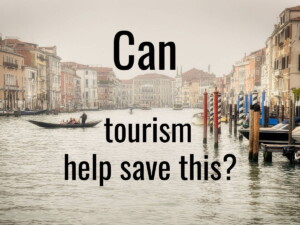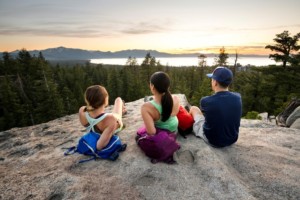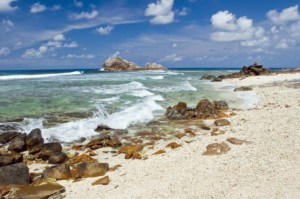From dystopia, utopia: COVID-19, collapse, and new hope for tourism’s future
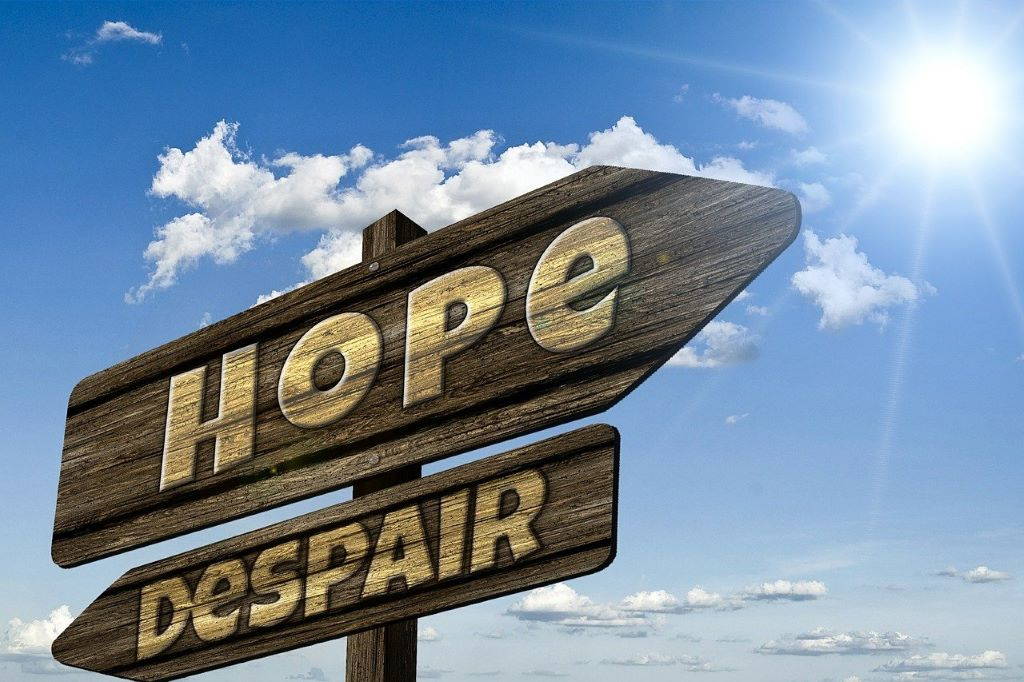
Through the lens of science fiction, his own writings about travel & tourism, and the musings of contemporary thinkers, tourism futurist Ian Yeoman wonders whether the COVID-19 pandemic represents a turning point for our industry. If so, which path will we take? Dr Yeoman is hopeful.
It’s a “Good Tourism” Insight.
[Thanks to Jim Butcher for inviting Dr Yeoman to write a “GT” Insight.]
COVID-19 has brought the real prospect of collapsing societies to our consciousness with hospitals overwhelmed, supply chains disrupted, and a social disorder and civil unrest that could escalate into a dystopian future; a future of fear, loss, death, unfairness, despair, disbelief, evil …
But against that dark background, stories of humanity, hope, love, and belief are brought into sharp relief.
From evil, good always emerges.
So, as bad as it has been for many tourism stakeholders, does the COVID-19 pandemic represent new hope for tourism?
From dystopia emerges utopia
Utopias paint a picture of perfect worlds — ideal worlds in which people feel happy and comfortable — and so they are often seen as a form of pure escapism.
Indeed, in terms of the tourist gaze, as prospective escapes from the everyday, tourism destinations are often portrayed as a paradises; beautiful beaches, stunning landscapes, perfect hosts.
On the other hand, dystopias portray a negative (and so, unwanted) image of future societies. They are worlds of contingency, conflict, and uncertainty.
We associate dystopian futures with misery and cruelty. In fiction, dystopias are depicted as troublesome worlds where nobody wants to live; except those who gain pleasure from inflicting, witnessing, and/or experiencing pain and misery.
The origin stories of dystopian science fiction futures often involve a warning of imminent danger, and a call for action and behaviour change that is either ignored or fails.
It is notable that the production and consumption of dystopian science fiction in the form of films, fables, and novels, has been long been mushrooming.
Consequently, when a disaster or crisis happens in the real world, it is easy to make connotations and connections between the ‘predictive’ power of such art works with the catastrophic reality.
Also see Gabby Walters’ “GT” Insight
“How travellers respond to crises and disasters”
For example, as the COVID-19 outbreak emerged, it was like reading Koontz’s science fiction novel The Eyes of Darkness which tells the story of a virus called Wuhan-400 which accidentally leaks from a research laboratory and sweeps the world.
The real COVID-19 virus and its variants has held the entire world hostage, producing a resemblance to early-stage transitions into post-apocalyptic futures as depicted in many science fiction texts.
Post-pandemic’s “new normal”, whatever that looks like, whether it is utopian or dystopian (and from whose perspective), is an unavoidable future reality.
The connection between science fiction and pandemics is not new. And there is nothing like a good disaster or end-of-the-world story to stimulate the mind of a reader.
From dark tourism research to practice
My tourism writings portray war, pandemics , disease, and extreme climate events; all potential dystopian futures where signals are explored and calls to action included.
More broadly, the consumption of dystopian futures is often associated with dark tourism, which is a concept that is at the centre of tourism practice and theory.
For example, by becoming a metaphor for catastrophic and deadly disasters, dark places are described as a dystopic places. They attract tourists with various motivations (e.g. nostalgia, learnings, cultural links, personal experiences etc.).
Also see Stephen Pratt’s “GT” Insight
“Atrocity, curiosity, tragedy, travel: Battlefield tourism in the Solomons”
Dark tourism provides an opportunity for visitors and hosts alike to reflect upon inevitable mortality and juxtapose those reflections with those of conscious and even hyperreal experiences.
Indeed, several authors such as Professor John Lennon discuss the opportunities afforded by dystopian tourism places and experiences to change lives. They identify the potential for dark tourism to trigger both emotional and cognitive mechanisms that engage visitors in a reflective, meaning-making and, ultimately, life-changing process.
Through metaphors, tourism uses dark places as a dystopia to imagine and visualise ‘the future of the past’.
From collapse to a new beginning
The founding father of modern future studies, Professor James Dator of the University of Hawaii has always been an advocate of the collapse and new beginning scenario.
A collapse scenario is not inherently negative, bad, or stressful, he would say, because it provides a wonderful opportunity for new beginnings.
Also see Raoul V Bianchi’s “GT” Insight
“Tourism, capitalism, & the coronavirus crisis: What is to be (un)done?”
It could be a new Garden of Eden; a return to an earlier “purer” or less corrupt way of life. At the centre of these ideas is the belief that from dystopia emerges utopia; from the collapse of civilisation, regeneration.
From sustainability to a regenerative future
Regeneration goes beyond sustainability to actively restoring, nurturing, and creating conditions under which ecosystems, economies, and people can flourish.
Nam Nguyen writes that regeneration is a mindset that appreciates human connection with nature, others, and other forms of life as part of PhD research.
Regeneration not only minimises harm but seeks to restore what has been damaged or lost to ensure that people, community, and planet thrive.
Also see Loretta Bellato’s “GT” Insight
“Is ‘regenerative tourism’ just a rebranding of ‘sustainable tourism’?”
So far, regeneration principles have been applied in many fields, such as agriculture, economics, finance, business, education, and health.
Tourism professor Joseph Cheer defines regeneration as “creating the conditions for life to continuously renew itself, to transcend into new forms, and to flourish amid ever-changing conditions”. Cheer associates regeneration with human flourishing, environmental flourishing, conviviality in social and cultural life, and inclusion in public life.
Also see Tazim Jamal’s “GT” Insight
“Towards a new paradigm for regenerative tourism and just futures”
Leading tourism thinker Anna Pollock would have regeneration “reveal the potential inherent in every living thing and allow it to become more – as in more complex, more beautiful, more adaptable, more resilient and more capable of living life to the full”.
For me, regeneration’s merits of connecting, caring, and supporting good of all other living forms reflect nuances of kindness, compassion, and loving-kindness.
Thus, COVID-19 has taken us to a world of near collapse but it has also accelerated our hope for the future and the role in which tourism will play.
What do you think? Share a short anecdote or comment below. Or write a deeper “GT” Insight. The “Good Tourism” Blog welcomes diversity of opinion and perspective about travel & tourism because travel & tourism is everyone’s business.
Featured image (top of post): Does COVID-19 represent a turning point for tourism? Image by geralt (CC0) via Pixabay.
About the author
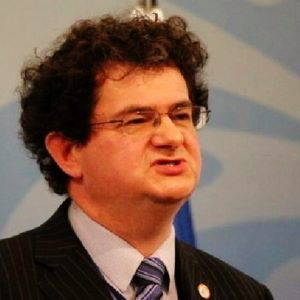
Ian Yeoman is a futurist. His new book, Science Fiction, Disruption and Tourism, discusses the future of tourism through the lens of science fiction.
A Sunderland AFC fan, Dr Yeoman is Associate Professor (Futurologist) at the Victoria University of Wellington, New Zealand, and Visiting Professor at University of Ulster, Northern Ireland, UK. Ian also serves as editor of the Journal of Revenue & Pricing Management and co-editor of the Journal of Tourism Futures.


